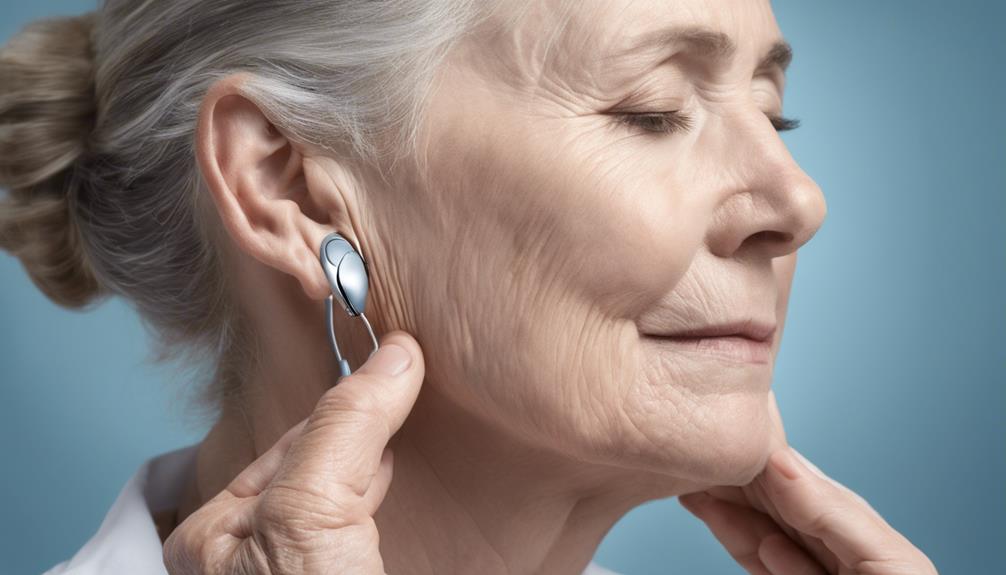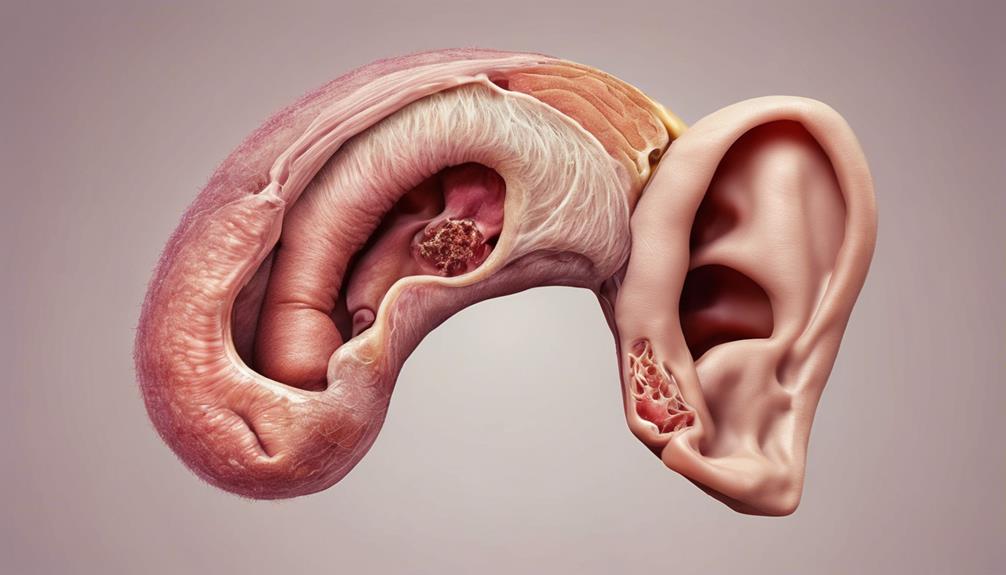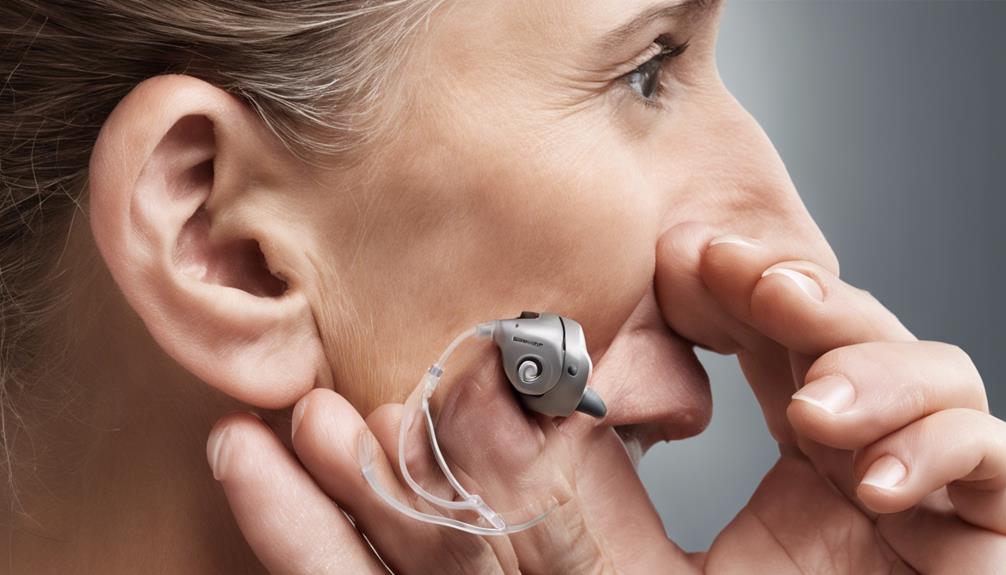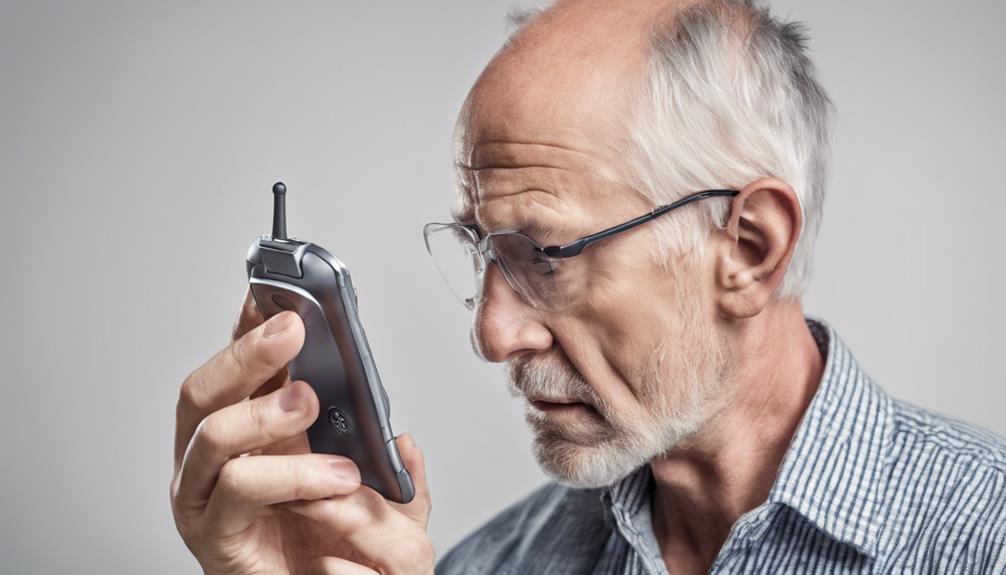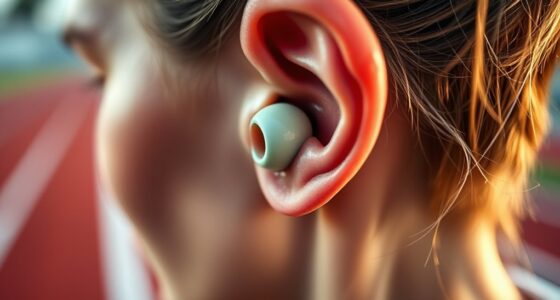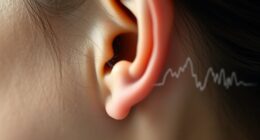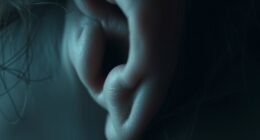Relieving itchy ears while wearing hearing aids is like experiencing a refreshing breeze on a hot day; it’s incredibly comforting. However, attaining this relief can be challenging, as various factors contribute to the discomfort.
By exploring common causes, practical tips for prevention, and effective remedies, we can navigate the journey towards alleviating itchiness and ensuring a pleasant hearing aid wearing experience.
Our discussion will shed light on the importance of proper care, maintenance, and seeking professional advice for optimal ear health and comfort.
Key Takeaways
- Understand causes of itchy ears for effective management.
- Prevent moisture buildup to maintain hearing aid functionality.
- Use home remedies like olive oil for relief.
- Ensure proper fit of hearing aids for comfort and ear health.
Common Causes of Itchy Ears
When wearing hearing aids, it's common for individuals to experience itchy ears due to the delicate nature of the skin in the ear canal. The skin in the ear canal is sensitive and can easily become irritated, especially when in contact with hearing aid components. Additionally, the presence of hair in the ear canal can exacerbate itching for users of hearing aids.
Identifying the root cause of itchiness is crucial to finding effective solutions. One key factor to consider is the proper fit of the hearing aids. If the devices don't fit well, they can cause friction and pressure on the delicate skin inside the ear, leading to discomfort and itching. Understanding the underlying reasons for ear itchiness can help in managing and addressing the issue effectively.
Preventing Moisture Buildup in Ears
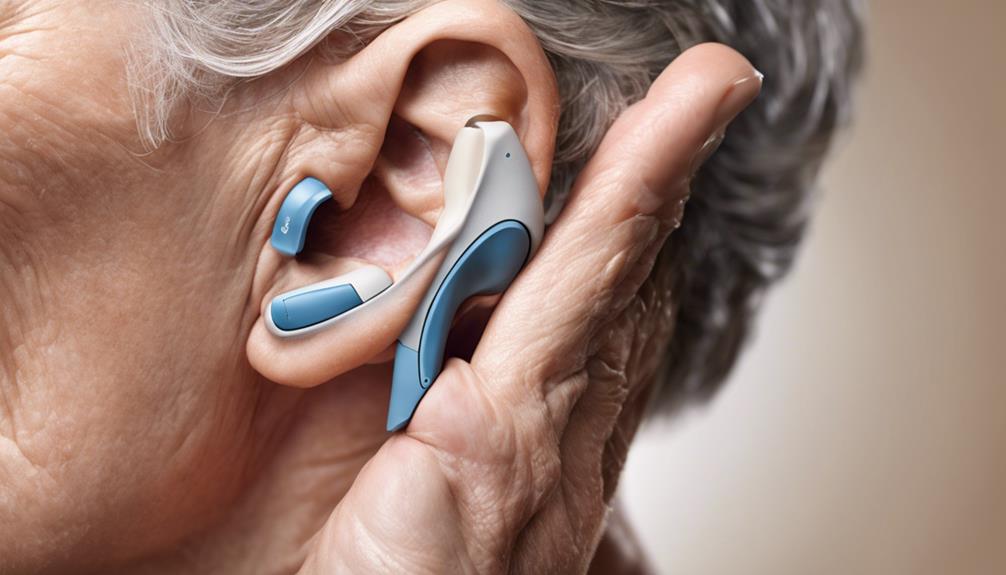
To maintain optimal comfort and functionality of hearing aids, preventing moisture buildup in the ears is essential. Moisture accumulation in the ear canal can lead to discomfort and potential damage to your hearing aids. Using dehumidifiers and drying kits can help prevent moisture buildup, ensuring your devices stay dry and functional. Proper storage of hearing aids when not in use is crucial to manage moisture-related issues.
Regular maintenance and cleaning of your hearing aids are also essential to prevent moisture-related problems. By taking proactive steps to control moisture, you can reduce the risk of issues and extend the effectiveness and longevity of your hearing aids. Remember, moisture control is key to ensuring your hearing aids work optimally and provide you with the support you need.
Effective Home Remedies for Itchy Ears
For individuals experiencing itchy ears while wearing hearing aids, incorporating home remedies can provide relief and comfort. Here are some effective ways to soothe itchy ears:
- Use Lubricants: Applying a few drops of olive oil or a commercial lubricant to the ear canal before inserting the hearing aids can help alleviate itching and reduce friction.
- Ensure Clean Ears: Properly cleaning and drying the ears before reinserting hearing aids is crucial in preventing moisture buildup, which can lead to skin irritation and itching.
- Choose Non-Allergenic Materials: Opting for hearing aids made from non-allergenic materials, such as silicone or hypoallergenic plastics, can minimize the risk of skin irritation and itchiness.
Ensuring Proper Hearing Aid Fit
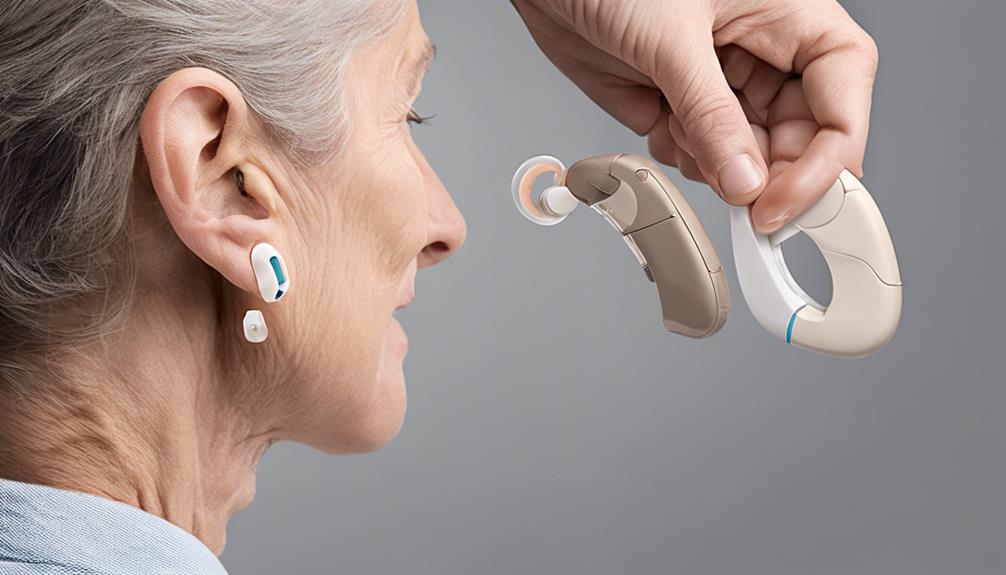
Ensuring a proper fit for your hearing aids is crucial in preventing discomfort and itching in the ear canal. A well-fitted hearing aid contributes to better ear health by reducing the risk of irritation and itchiness. It's important to pay attention to any signs of discomfort or irritation while wearing your hearing aids.
Regularly monitoring the fit by wearing them for a few hours each day can help you identify any issues early on.
If you experience persistent itching or discomfort, it may indicate an improper fit. Seeking professional help is advisable in such cases. A hearing care professional can assess the fit of your hearing aids and make necessary adjustments to ensure a comfortable and secure fit.
Consulting With Hearing Specialist
When seeking relief from itchiness in the ears while wearing hearing aids, consulting with a hearing specialist is essential for identifying and addressing the underlying causes effectively. Hearing specialists play a crucial role in ensuring that your hearing aids fit correctly and provide optimal comfort.
Here are three key reasons why consulting with a hearing specialist can help manage itchiness:
- Root Cause Identification: Hearing specialists can pinpoint the root cause of the itchiness, whether it's due to improper fit, allergic reactions, or other factors.
- Adjustments and Recommendations: By evaluating the fit of your hearing aids, specialists can recommend adjustments to alleviate discomfort and enhance your overall experience.
- Personalized Solutions: With professional guidance, you can receive personalized solutions tailored to your specific needs, ensuring that you can manage itchiness effectively and enjoy wearing your hearing aids comfortably.
Regular consultations with a hearing specialist not only address current issues but also help prevent future discomfort, providing you with the support needed for optimal comfort and itchiness management.
Frequently Asked Questions
What Are the Best Ear Drops for Hearing Aid Wearers?
When it comes to finding the best ear drops for hearing aid wearers, it's important to prioritize products that are gentle and safe for use with your devices. Look for drops with natural ingredients like olive oil or glycerin to soothe the delicate skin in the ear canal without causing any harm.
Avoid alcohol or harsh chemicals that can worsen irritation. Consulting with a hearing care professional can help you find the most suitable ear drops for your specific needs.
What Can You Put in Your Ears to Keep Them From Itching?
When our ears itch, we can use solutions like lubricants or specialized drops to alleviate discomfort. It's crucial to avoid inserting cotton swabs or sharp objects into the ear canal.
Opting for hypoallergenic materials in our hearing aids and ear care products can help prevent allergic reactions. Regular cleaning and maintaining good hygiene practices can also reduce itching.
It's essential to care for our ears gently to keep them comfortable and healthy.
Can You Use Vaseline on Hearing Aids?
Yes, we can use Vaseline on hearing aids. It's safe and can alleviate discomfort caused by dry skin or friction. Applying a thin layer with a cotton swab creates a barrier, enhancing comfort.
Regular use maintains ear health. Vaseline helps reduce itching and irritation, improving the experience of wearing hearing aids.
Why Does the Inside of My Ear Itch Like Crazy?
We totally get it – crazy itching inside your ear can drive you nuts! It could be due to sensitive skin, hair irritation, or even allergies. Sometimes, the components in your hearing aids might be contributing to the discomfort.
Identifying the root cause is key to finding relief. Let's work together to figure out what's causing the itchiness and make those ears feel better ASAP!
Conclusion
In conclusion, taking care of itchy ears while wearing hearing aids is like tending to a delicate garden – it requires attention, patience, and the right tools.
By addressing the root causes, maintaining cleanliness, and ensuring proper fit, you can enjoy a comfortable and itch-free hearing experience.
Remember to seek professional guidance if needed, and always prioritize your ear health for optimal comfort and clarity in your hearing journey.

